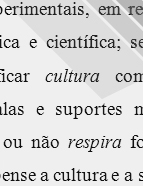

................................
And although at the end of his life he subverted the terms in which he posed the question (A. J. Saraiva, , Para a história da cultura em Portugal [Towards the History of Culture in Portugal], 1946, I), advocating an appeal to the reincarnation of the collective unconscious, it does not invalidate the complex weave of cultural factors that determine the pathos of the nation, an affective synthesis of a history. Yet by placing history on an intermediate and mediating epistemic plane between the positive sciences and metaphysics, beyond any methodological and scientific mimetism, aiming at the evolutionary apprehension of diverse civilisations (although "the systematic understanding of history" does not allow for "the idea of a straight and progressive evolution in all its points"), he mobilised the knowledge of ideas and cultural productions as a central element in the study of the "progress of the humanisation of the Spirit" (Oliveira Martins, O Helenismo e a Civilização Cristã, 1985, pp. 1-20); thus, the História de Portugal (1879) ends with the question: "Will the flame of an undefined thought still smoulder, latent and unknown?". Before the Biblioteca, Martins published the essay that is innovative in many respects: Camões, Os Lusíadas e a Renascença em Portugal [Camões, The Lusiads, and the Renaissance in Portugal] (1872; 1891), urging the diachrony of "symbolic intuition," creative sensitivity and fantasy, in examining the paganism and Neoplatonism of the poem (Chapter IV) tied to the biography and epoch of Camões, to clarify in the affective homeland the object of a "collective will" that surpasses ethnicism and finds effective lessons in history and in its own cultural humus. In exploring the psychological strand, by ploughing the idiosyncratic path of which he is the proto-memory, Martins marks the subsequent work, open to ontogenetic and organic-evolutionary elucidations that over a century had ground to thrive. The psychological exegesis of Sebastianism as a "manifestation of the intimate natural genius of the race," "abdication of history," "simple explosion of despair," critically weighed later by the essayism of S. Bruno, A. Sérgio, A. J. Saraiva, and E. Lourenço, would persist as one of the great cultural myths (saudade (.) do que ia morrendo aos poucos [longing (...) for what was slowly dying], J. Serrão, Do sebastianismo ao socialismo [From Sebastianism to Socialism], 1969-1988) throughout the 20th century. Likewise, in another strand, the organicist vision of history and the nation allowed for the "cultural" rooting in medieval corporatism, the theme of themes in unitary and nationalist historiography, a catechism officialised by Salazarism in its schools, pulpits, and tribunes.
